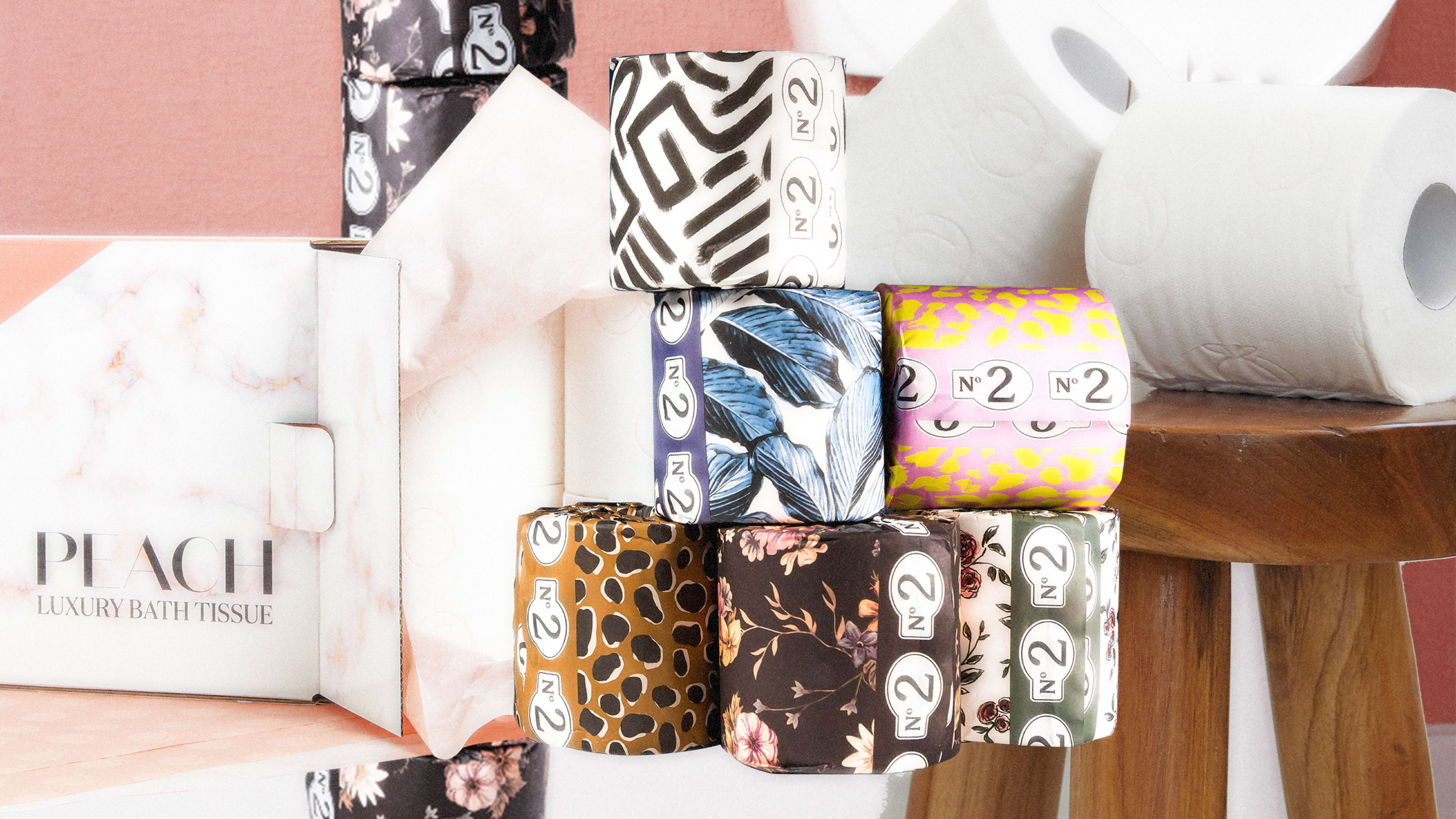After 150 years, toilet paper is getting an update from a new flock of startups that claim their rolls can seriously improve the butt-wiping experience. All of them have made a sense of humor part of their brands, with names like No. 2, Who Gives A Crap, Tushy, Cheeky Monkey, Bippy, and Peach, a nod to the emoji that’s become code for “butt.”
While all of them are relatively small—most are self-funded or have received pre-seed rounds of under a million dollars—the industry they want to disrupt is worth $31 billion. For decades, the major players in the tissue industry, including conglomerates like Procter & Gamble, Georgia-Pacific, and Kimberly-Clark, have treated their products (think Quilted Northern, Angel Soft, Scott, and Charmin) as a commodity, competing largely based on price. And none of them have done much to innovate besides simply selling larger rolls so you don’t need to replace them as often.
The slew of new, TP-focused startups see an opportunity in this staunchly unchanging industry. Their strategies include using more sustainable materials, eschewing plastic wrap, improving texture, and perhaps most importantly, designing rolls that look beautiful enough to double as bathroom decor. In exchange, they’re charging more than their old-school competitors, which generally sell a standard roll for under $1. Though Who Gives A Crap has prices starting at $1 a pop, Peach charges as much as $3.
While these innovations may seem like the modern pinnacle of direct-to-consumer marketing, these startups are actually taking a page from the very old playbook of the original inventor of toilet paper, Joseph Gayetty. In 1857, the New York entrepreneur came up with a new post-loo wiping alternative to the most commonly used toilet paper at the time: pages from the Sears, Roebuck, and Co. catalog. Gayetty developed sheets of manila hemp infused with aloe and delivered in handy boxes that sat neatly in your bathroom. At a price of 1,000 sheets for $1 (which is equivalent to $28.86 in today’s money), toilet paper was a wildly indulgent luxury. But it was a huge hit. Before long, toilet paper became a must-have item in every American household.
Today’s startups are betting that consumers will pay more for a higher-end version of a commodified product. It’s an approach that’s been wildly successful for some lifestyle brands, like the razor startup Harry’s, and Away, which did this with suitcases. As crazy as it sounds, these toilet paper startups want to sell an elevated toilet experience. Aaron Doades, CEO of Peach Goods, puts it this way on the Peach Goods website: “We believe in moments for ourselves. To give every part of us—and our bathrooms—something better.”
[Photos: No.2]
Beating deforestation—and “butt crumble”
Earlier this year, the Natural Resources Defense Council released a report that laid out how the facial tissue, paper towel, and toilet paper industries are devastating forests around the world at a rate of 27,000 trees a day. Most mainstream toilet roll brands source their wood pulp from boreal forests in Canada, which are very old and take between 20 to 50 years to regenerate. The report came with a sustainability scorecard that listed how various brands fared. Brands like Quilted Northern, Charmin, and Angel Soft each received an “F.” Brands like Seventh Generation and Earth First (which use recycled paper) each received As.
Delivering a more sustainable roll is a focus for nearly all of the newer toilet paper brands—perhaps no surprise, given the wealth of data on younger consumers being more eco-friendly, conscious shoppers than their elders. These companies generally take one of two approaches: One is to use recycled paper rather than pulp from virgin trees, which not only saves the forests themselves, but requires less energy and water than felling trees. Alternatively, they use bamboo, a plant that grows much faster than a pine or spruce tree, and is generally sourced from China. Who Gives A Crap offers both recycled and bamboo paper, while Tushy, No.2, and Cheeky Monkey all use bamboo; Peach is the only brand that uses virgin pulp.
According to the NRDC, bamboo “has a fraction of virgin fiber’s impact on forests and the climate,” and tissue products made from bamboo release 30% fewer greenhouse gas emissions than products made from virgin wood. (The most eco-friendly option, though, is a bidet.)
Neither of these alternative materials is particularly new: Seventh Generation has been using recycled paper for decades, and sustainable retailer Grove makes bamboo toilet rolls. But their younger competitors promise more than just recycled materials—they promise technical innovations like softer paper textures, as well as hipper design.
For instance, No. 2 says it has found a way to reduce what it calls “butt crumble,” or the bits of residue that get left behind after wiping. To get the exact texture she was looking for, founder Samira Far spent six months on the R&D process with her manufacturer in China, testing out different formulas, thicknesses, layers of paper, and how quickly it dissolves in water. After all that testing, she settled on a material that is silky to the touch, but won’t leave tiny pieces, um, behind.
Peach uses wood pulp, which is a less eco-friendly option. But the brand makes the case that it is selling a farm-to-bathroom roll, since it sources its pulp from the United States and uses an American manufacturer, while the other startups source their rolls from China. Peach also emphasizes that its rolls are “organic.” This sets it apart from conventional brands, which often use bleach, formaldehyde, and other chemicals to artificially soften, strength, or whiten their paper. (Most of the rolls featured in this story are also organic.)
A “branded” butt-wiping experience
These brands aren’t just focused on the product—they’re focused on packaging. For instance, Tushy, No.2, Bippy, and Who Gives A Crap all sell their TP wrapped in eye-catching patterned paper, so taking out a new roll feels a little like opening a present. While most toilet paper brands don’t sell individually wrapped rolls, No.2’s Far thinks it’s a valuable improvement on the status quo, because she believes individually wrapped rolls look more beautiful and are more sanitary. After all, rolls of paper sit around in bathrooms for a while before people use them, potentially gathering dirt and splashes of shower water.
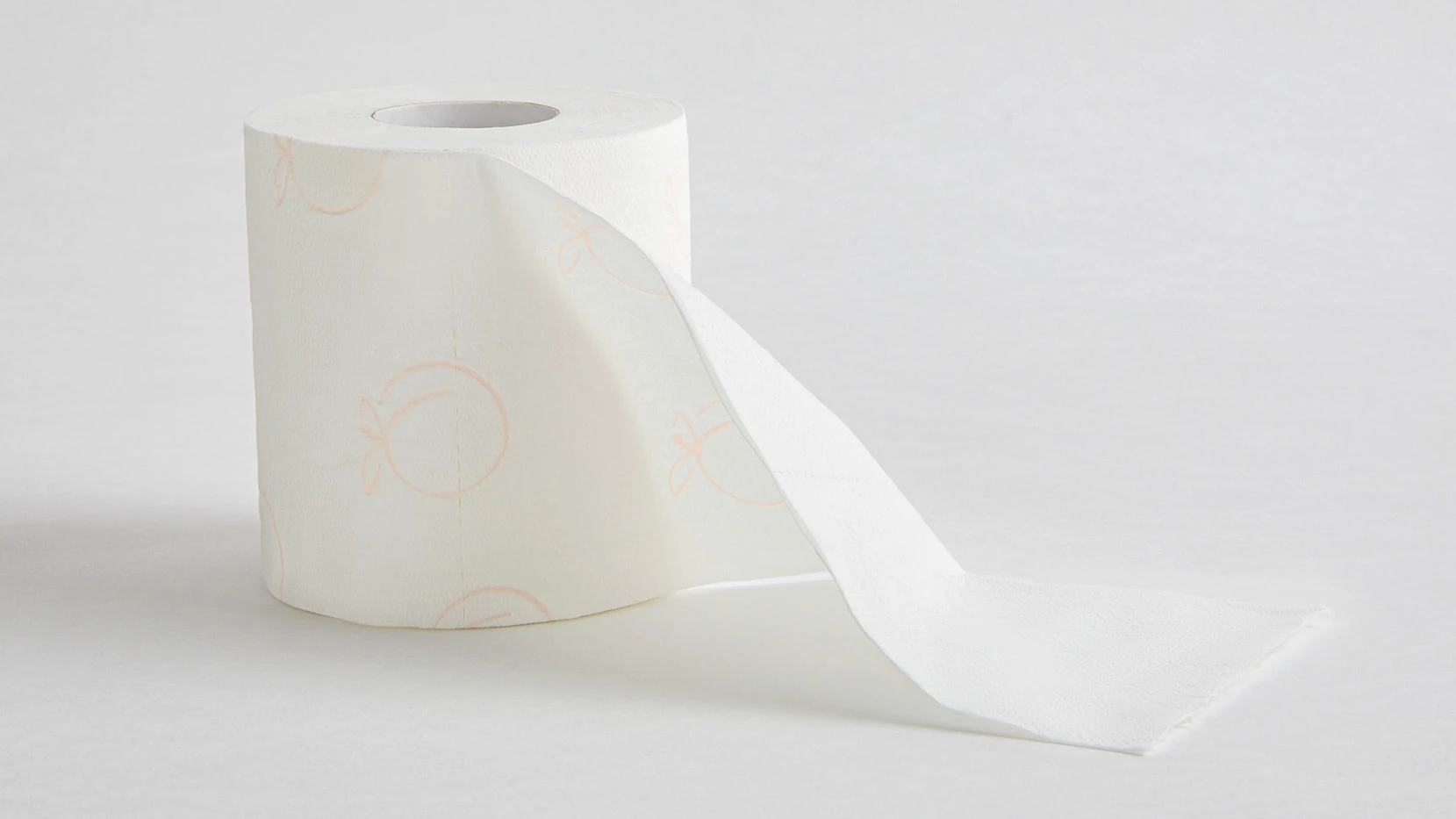
These brands have turned this outer layer into an opportunity to incorporate some glamour into the bathroom. No. 2 offers several different patterns, ranging from safari prints to florals, allowing the customer to pick the style that best matches their bathroom. Far says consumers like the idea of “decorating” their bathroom with rolls that match their aesthetics. Who Gives A Crap’s paper comes covered in geometric patterned paper. And it recently commissioned Paul Garbett, founder of Garbett Design, to create a limited-edition box of rolls covered in whimsical characters that could be stacked in different ways to create different looks. It sold out quickly.
Peach skipped the outer wrapping and focused on the look of the roll itself. The brand imprints a pink peach on the sheets, something that Doades says came at significant manufacturing cost. But he believes that this additional feature was worth it because it contributed to the overall idea that the customer was having a “branded” experience.
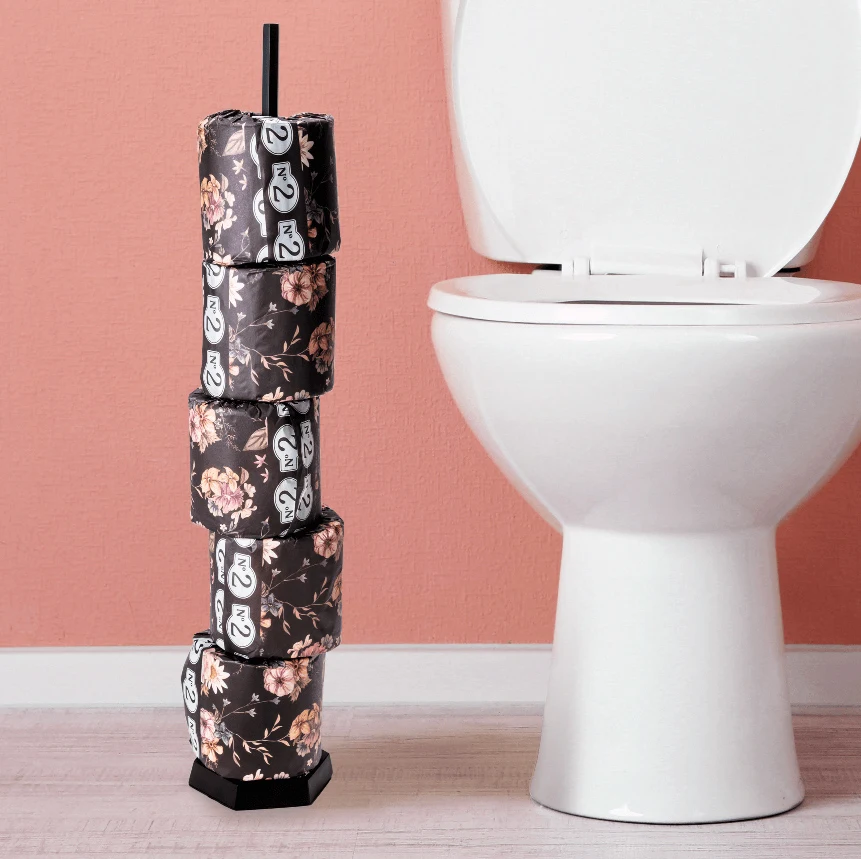
Finally, the brands are thinking about how to deliver the rolls to the customer. Many offer subscription programs. Enormous boxes of rolls appear on your doorstep on a regular schedule, so you never have to do a last-minute TP run.
Of course, you could have Charmin rolls delivered on a schedule with Amazon’s Subscribe and Save program. But these startups are not letting any part of the customer experience go unnoticed. “There’s no reason you should be carrying enormous rolls of toilet paper from the store to your house,” says Doades of Peach.
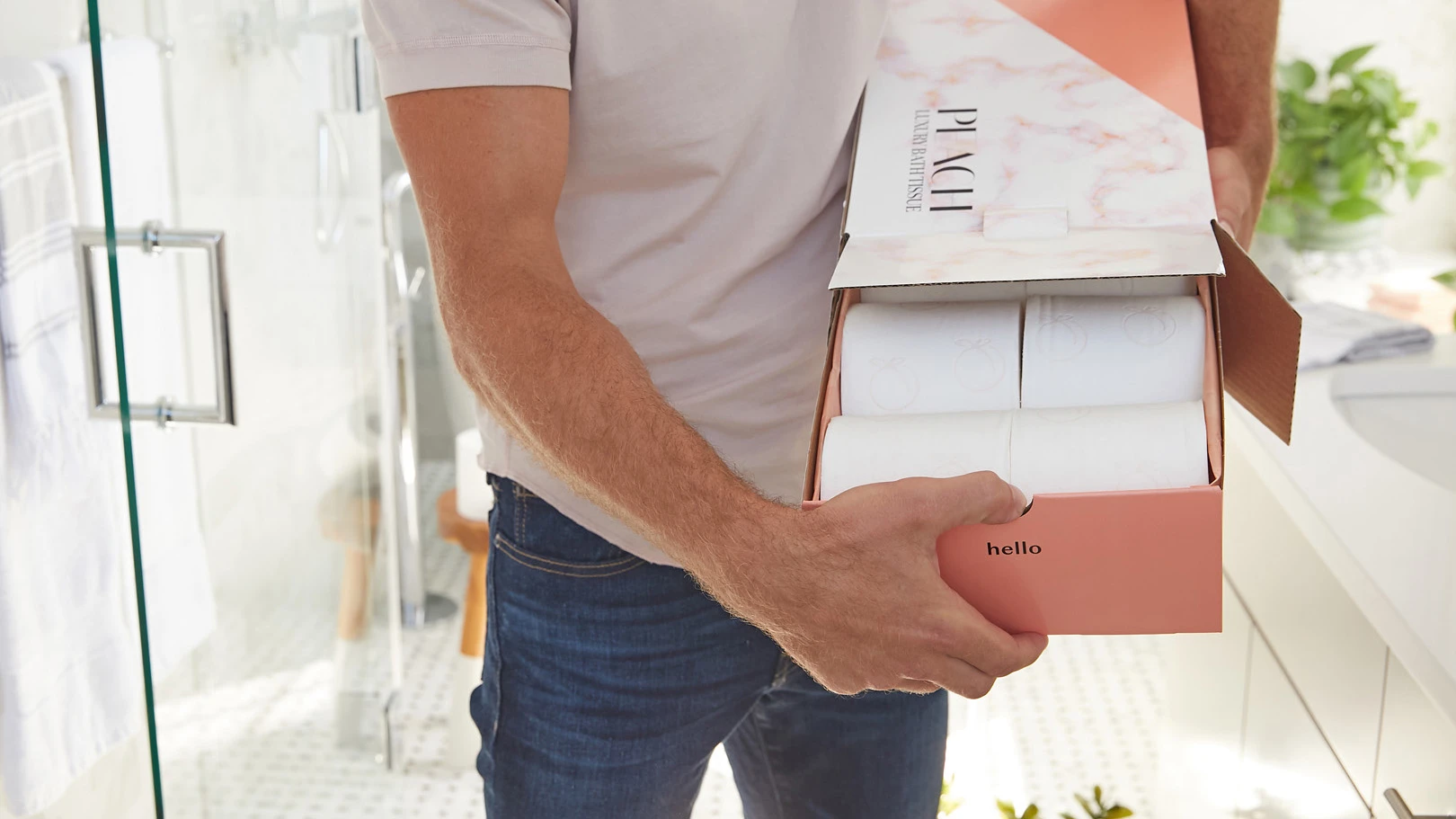
So are premium rolls here to stay? These startups seem to be making the same gambit that Gayetty did more than a century—that consumers will invest in a better bathroom experience as a form of self care and wellness. But they have an uphill battle. When Gayetty introduced his paper to the marketplace, nothing like it existed. Today, these brands are not only competing with each other, but with the dozens of older brands that make perfectly serviceable rolls. In the end, perhaps their biggest impact is that they’re showing the industry’s old guard that consumers are willing to pay more for better-designed, eco-friendlier toilet rolls. If this spurs them to create a better butt-wiping experience, everyone wins.
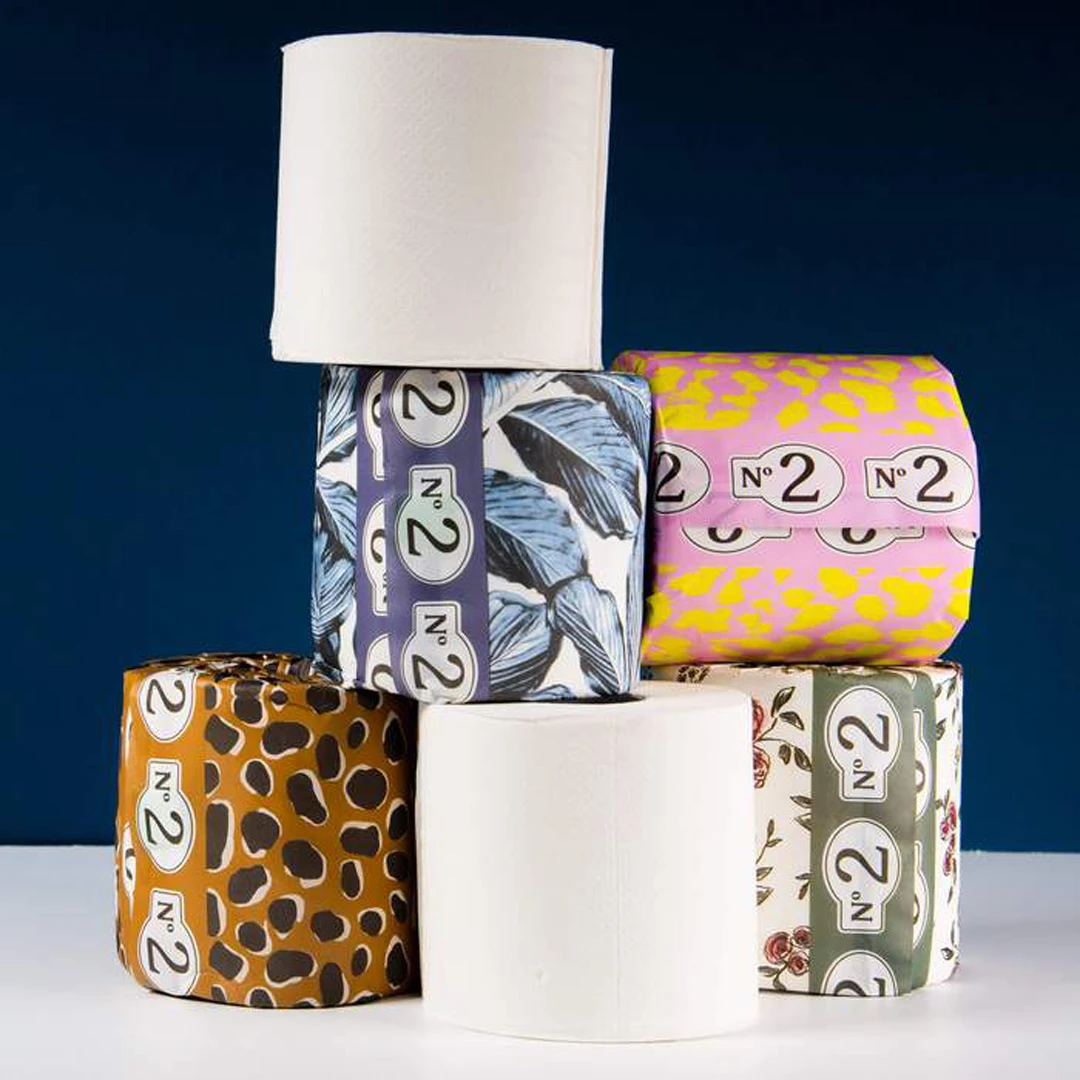
Recognize your brand’s excellence by applying to this year’s Brands That Matter Awards before the early-rate deadline, May 3.
